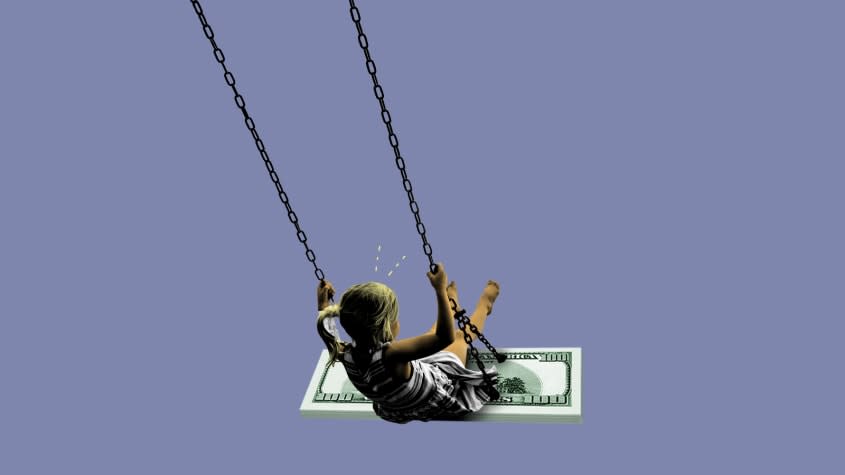The child tax credit payments are already showing why they should be made permanent

We have a new piece of evidence that the welfare state works.
The Census Bureau reported this week that the percentage of adults in households with children experienced a significant drop in "food insufficiency" in its latest monthly survey results — from 11 percent in the month ending July 5 to 8.4 percent by August 2. (Adults in households without children actually saw a slight uptick in food insecurity.) There was a similar drop in households with children that reported trouble paying their expenses, from 31.5 to 29 percent.
The likely difference? Households with children received their first child tax credit checks in July — $300 for each child age 5 and under, and up to $250 for each kid between ages 6 to 17. Roughly 35 million families received the payments, and the initial results suggest they put that money to good use: 47 percent of respondents said they used the money to pay for food, while about 10 percent spent the money on child care.
This is good news, and to be expected. After decades of fierce battles between Republicans and Democrats over the size and scope of the American welfare state, the pandemic created a breakthrough of sorts — unemployment benefits were made more generous (until they weren't, in GOP-governed states) and the federal government sent out a couple of stimulus checks to help workers weather the blow to the economy. The result, as my colleague Ryan Cooper has documented, was that America in 2020 had the lowest poverty rate in its history. It only makes sense that the new payments to parents would have similar salutary effects.
The next step, of course, is to ensure the payment program keeps going.
As it exists, the payments are only going to be made this year, having been created on an emergency basis by the American Rescue Plan passed during the early days of the Biden presidency. Democrats hope to extend the payments for another few years under the $3.5 trillion budget reconciliation proposal offered up in the Senate — but there's a chance the bill could fall prey to intra-party infighting. The tax credit provision shouldn't be remotely controversial. Helping families is good, and it works.
You may also like
How sociology shows 'policy makers have been looking at vaccine refusal all wrong'
DNC members reportedly 'super frustrated' by White House overreach in party affairs
2020 Census data shows U.S. population is more diverse and urban

